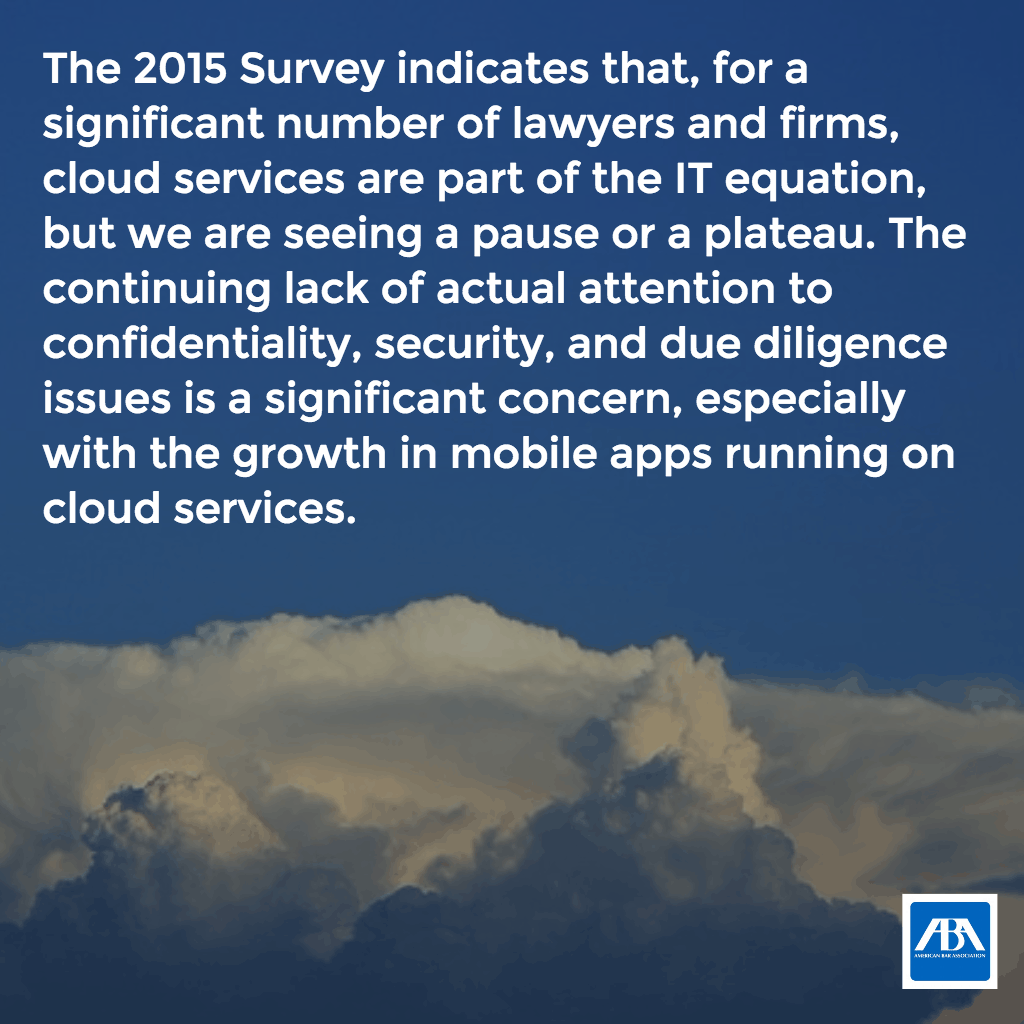ARCHIVED CONTENT
You are viewing ARCHIVED CONTENT released online between 1 April 2010 and 24 August 2018 or content that has been selectively archived and is no longer active. Content in this archive is NOT UPDATED, and links may not function.Extract from article by Dennis Kennedy published by the American Bar Association
Cloud computing simultaneously intrigues and confuses lawyers. Getting them to agree on definitions of the “cloud” and “cloud computing” can be as difficult as agreeing on what images cloud formations suggest. The ABA 2015 Legal Technology Survey Report focused on the basic concept of “web-based software service or solution,” including Software as a Service (SaaS). When we say “cloud computing,” we mean software or services that can be accessed and used over the Internet via a browser (or mobile app) where the software itself is not installed locally on the computer being used by the lawyer accessing the service. Another common way to describe cloud services is to refer to “hosted software” or “hosted services.”
The cloud approach has become quite popular in the business world, large and small (e.g., Salesforce.com, BaseCamp), and for individuals (e.g., Dropbox, Gmail, Google Apps, and Evernote). You can also easily find legal-specific cloud services (e.g., Clio, Rocket Matter, Bill 4 Time, and many others). The 2015 Survey shows that lawyers are still moving to the cloud cautiously, probably lagging behind the widespread use of the cloud by businesses and individuals outside the legal profession.
Or maybe lawyers are actually using the cloud in ways that reflect general cloud usage, but simply do not realize that they are doing so. Many survey results show “Don’t know” answers and contradictory statements about actual usage of the cloud.
Read the complete article at Cloud Computing






















